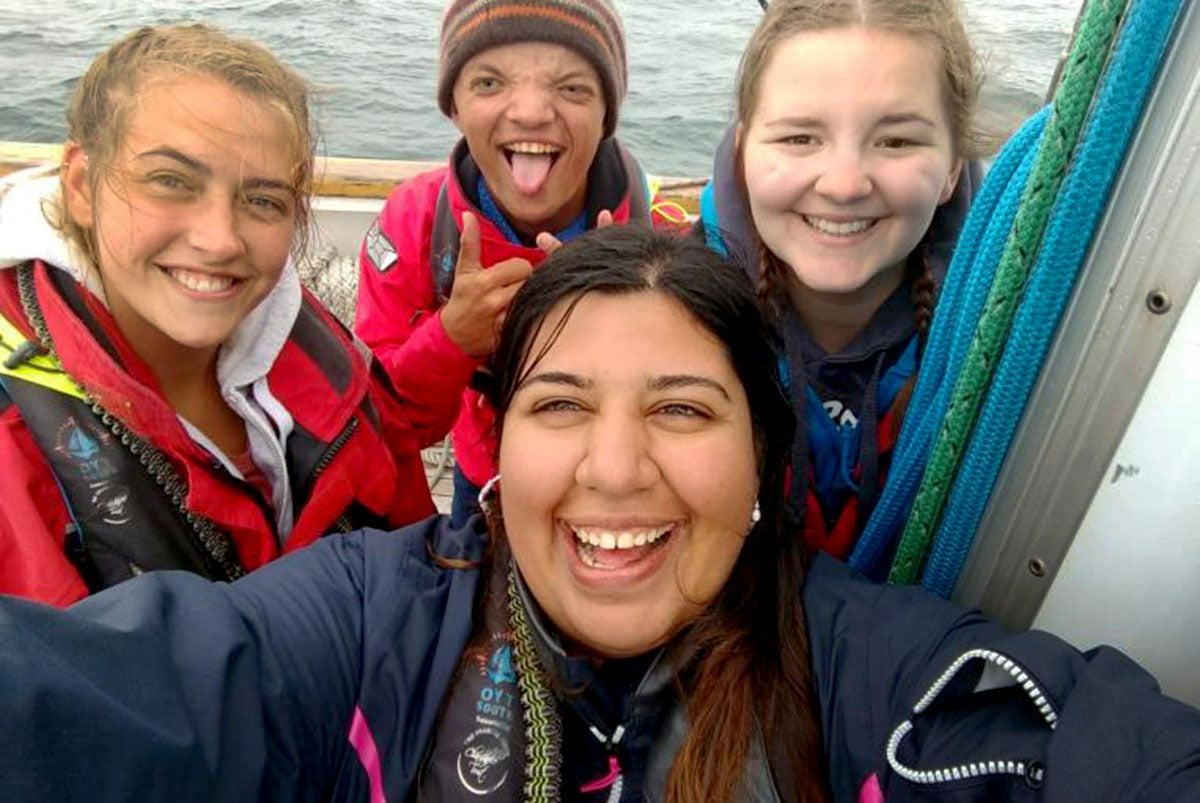
Macs on the Sea brings the joy of kayaking to all abilities. With each paddle stroke, adventurers glide across the water, leaving worries ashore.
Teenage years can be confusing and complex at the best of time. For a teenager with MACS it can be especially difficult, often lacking in confidence, finding it hard to make friends, communicate their feelings (often due to a lack of eye contact) and overall develop the independence often taken for granted by their peers. Giving opportunities to access adventurous outdoor activities is one way of having a real positive impact and instilling confidence during this important time in their lives.
Lindsay from MACS.org gave us a bit more info about why they needed help from the Alpkit Foundation.
“The young people we support all have a a MACS visual impairment – microphthalmia (small eyes), anophthamia (an absence of eyes) or coloboma (a cleft in the eye). Taking a blind or visually impaired child on a sailing trip is a life changing experience.

This award was used to help towards the cost of the boat hire, allowing no added cost to those who took part. It enabled nine visually impaired young people to take part in this challenging week-long sailing adventure, which was often in adverse weather conditions this year!”
To help understand the impact of their sailing trip they evaluate it using the outcomes wheel, developed by Children in Need and the Prince’s Trust to measure how their young people feel about themselves at the start of the voyage and again at the end, giving themselves marks out of six in ten different areas. So how did they get on this year?
“From our 2019 sailors we saw a marked change from the start to the end results, with overall scores for all the young people moving up 25 points from the start to the end of the voyage. The most significant differences were improvements in: compromise and negotiation when living with different people, coping with new experiences and dealing with setbacks.”


Lindsay had some more news for us too.
“Two of our young sailors earned Royal Yachting Association Start Yachting certificates. These are proper recognised qualifications which young people can keep in their Record of Achievement. It shows that they mastered some basic sailing skills; but perhaps even more importantly, earning the certificate also provides evidence of transferrable skills. To complete it, they had to be able to listen, concentrate, work in a team, practise things when they initially struggled, until they were able to get them right, take part in routine tasks such as cooking and cleaning as well as the more exciting jobs, cope with living in an entirely unfamiliar situation, cope with being away from home, undertake tasks which some will have found really challenging, take responsibility when asked, and much more. They should be proud of themselves for doing so well.”
We couldn't agree more, it sounded like an amazing trip.